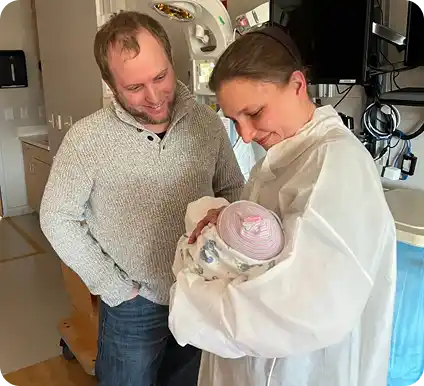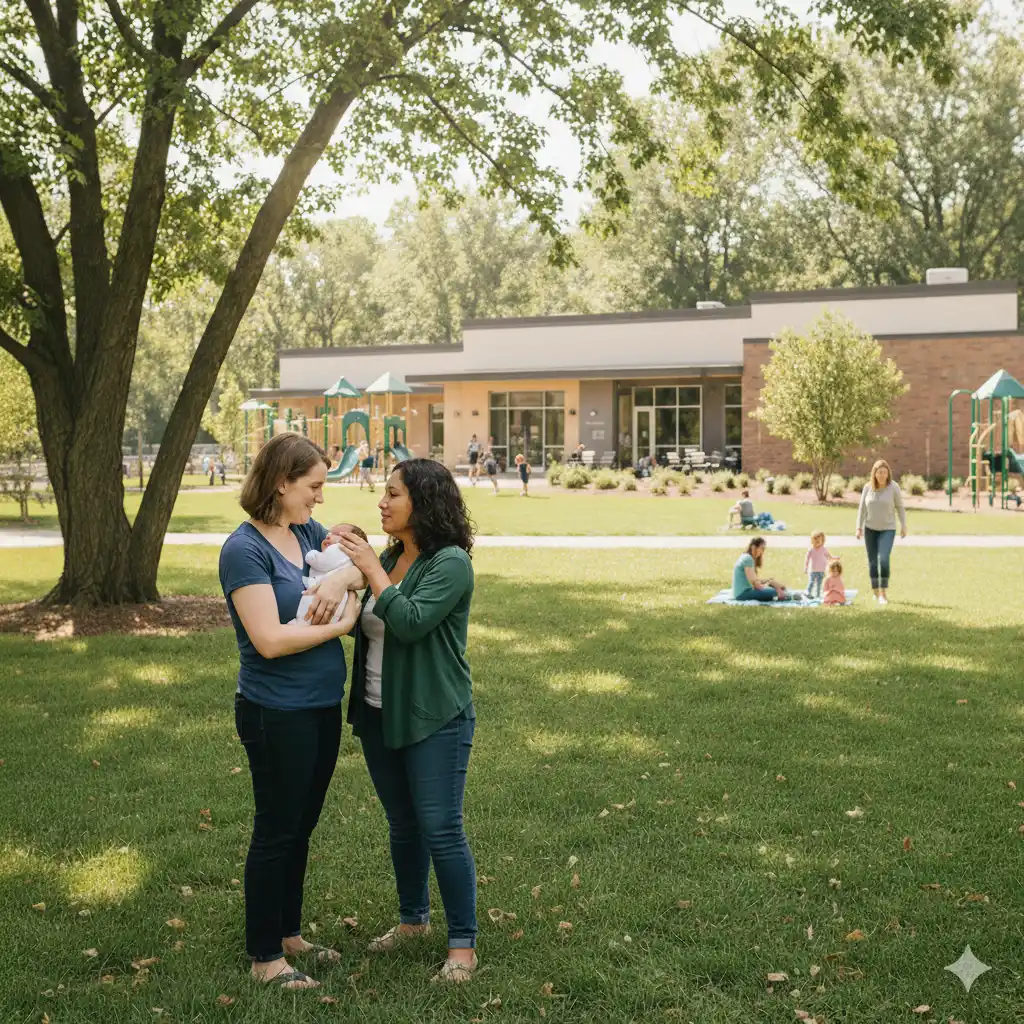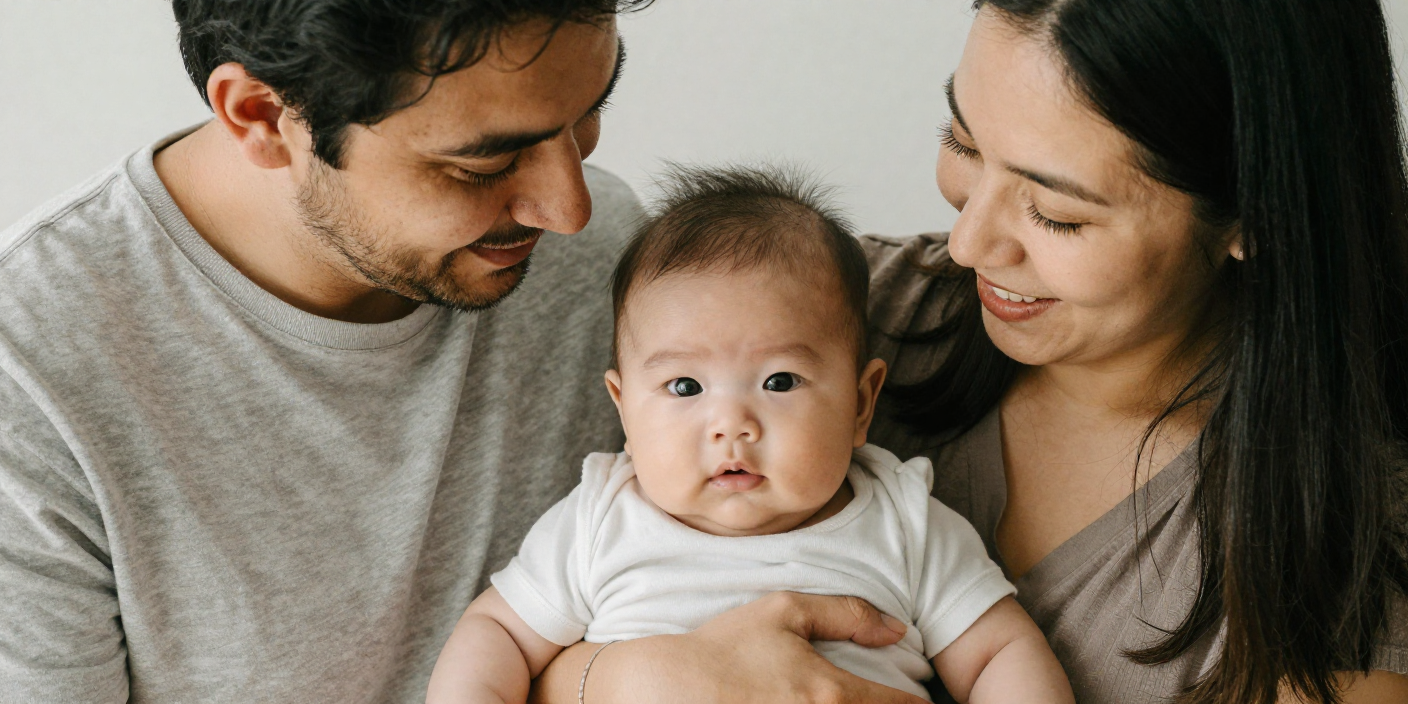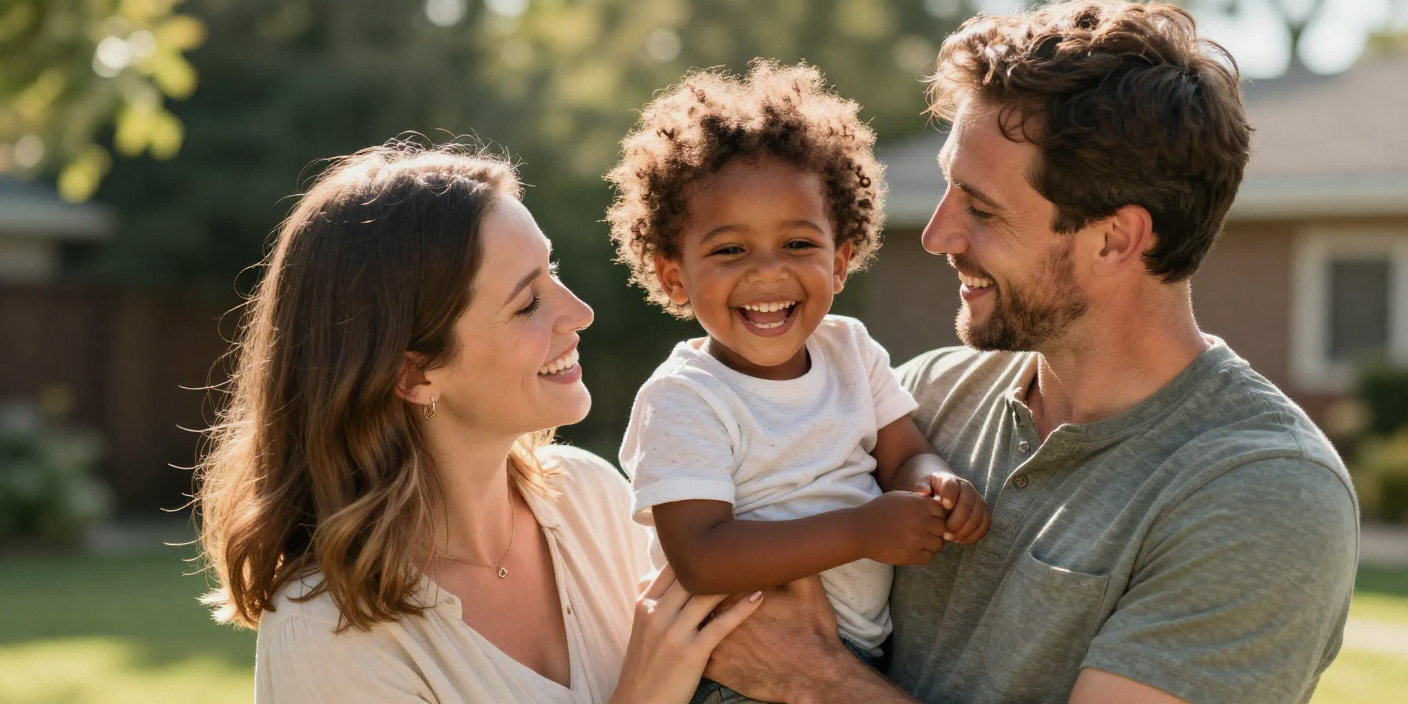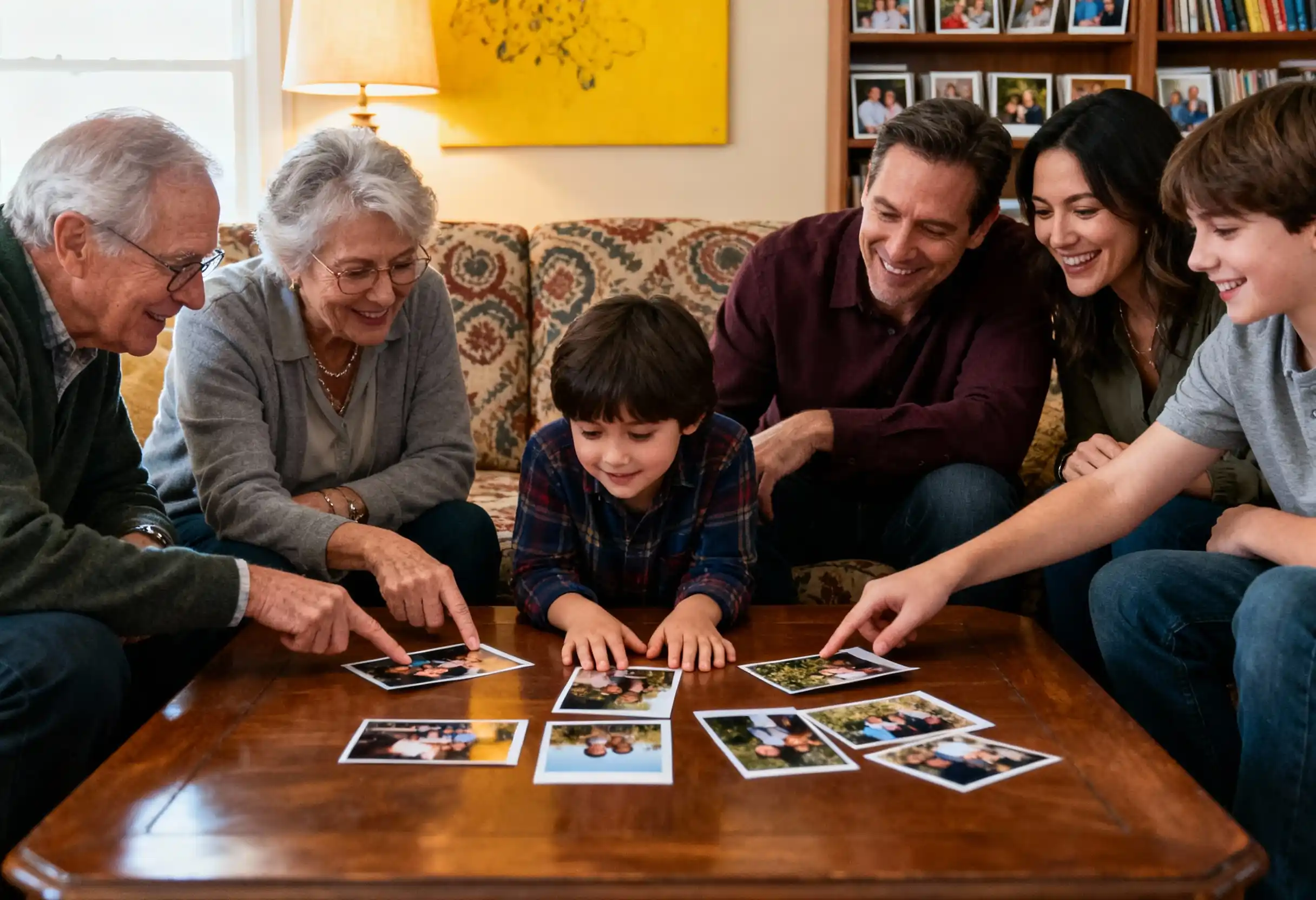A Playwright's 30 Year Journey to Birth Family Reunion (Part 1)

Anthony Akerman's life changed forever when he discovered at age 10 that he was adopted. As a celebrated South African playwright and author whose award-winning works include Somewhere on the Border and Dark Outsider, his recently completed play, Leading Ladies, received the 2021 WGSA Muse Award as Best Stage Play. Akerman has spent decades channeling his complex adoption experience into his art. His memoir, "Lucky Bastard" chronicles a three-decade search for identity that took him across continents and through the emotional complexities of adoption reunion. What makes Akerman's story particularly significant is his experience as a late-discovery adoptee - someone who learned about their adoption well into childhood rather than growing up with this knowledge from birth.
In this episode of the Voices of Adoption podcast, hosts Donna Pope and Nathan Gwilliam explore Akerman's adoption journey with the depth and authenticity that complex adoption stories deserve. Donna Pope, who serves as Executive Director of Heart to Heart Adoptions and has facilitated thousands of adoptions over 26 years, brings professional insight to the conversation, while Gwilliam's experience as founder of adoption.com provides technological and community perspectives on adoption search and reunion processes. Together, they create space for Akerman to share not just the positive moments of his reunion story, but also the ongoing challenges and repeated disappointments that made his journey far from a simple success story.
The impact of late adoption discovery creates unique psychological challenges that differ from those faced by adoptees who always knew their adoption story. Akerman's journey illustrates the particular trauma of having your entire understanding of identity and family history shattered in a single moment. His story also highlights the additional complications faced by adoptees dealing with sealed records, international borders, and birth parents who may not be prepared for reunion contact. Through his experience meeting both birth parents - including a birth father who was heir to a famous wine dynasty - Akerman's story reveals both the healing possibilities and ongoing challenges that adoption reunions can bring.
When Adoption Discovery Shatters Everything
The moment Anthony Akerman learned he was adopted marked the beginning of a lifelong struggle with identity and belonging. At age 10, this revelation didn't just add new information to his life story - it completely rewrote everything he thought he knew about himself. The discovery meant that his entire family history, from grandparents to cousins to the family name itself, was no longer truly his. This type of late discovery creates a specific form of adoption trauma where the child must not only process being adopted but also cope with feeling deceived about their fundamental identity.
The physical differences that Akerman had always noticed suddenly made sense after his adoption discovery. At nearly six feet tall with adoptive parents who were both around five feet, and with an equally tall adopted sister who looked nothing like him, the family dynamics had always seemed unusual. These subtle signs that many adoptees report noticing retrospectively become more significant after discovery. The realization often brings both relief - finally understanding why they felt different - and additional confusion about what other aspects of their identity might not be what they seemed.
The shame and secrecy that surrounded adoption in the 1950s and 1960s compounded the trauma of late discovery. Akerman immediately felt less authentic and worried that others would think less of him if they knew he was adopted. This internalized stigma led him to initially want to keep the adoption secret, even though he struggled with keeping secrets. The societal attitudes of the time, where adoption was seen as something to hide rather than celebrate, created additional layers of complexity for children trying to process their adoption status and integrate it into their developing sense of self.
Living in Limbo, Sealed Records and Invented Origin Stories
For nearly three decades, sealed adoption records kept Akerman trapped in a state of identity limbo where speculation replaced factual knowledge about his origins. South African adoption law from 1923 had created a system of permanent secrecy designed to protect all parties involved, but which ultimately left adoptees without access to basic information about their biological heritage. This legal barrier meant that Akerman had to accept he might never know where he came from, who his birth parents were, or what circumstances led to his adoption placement.
The absence of factual information forced Akerman to create what he calls "origin stories" - narratives that filled the void left by sealed records. These invented histories ranged from worst-case scenarios involving prostitution and abandonment to fairy-tale versions featuring princesses and royal bloodlines. The psychological need for some kind of narrative about one's beginnings is so strong that adoptees will create these stories even when they know they're fictional. These origin stories serve a protective function, helping adoptees prepare emotionally for various possibilities while giving them some framework for understanding their existence.
The generic information that adoptive parents often received and shared with their children proved equally frustrating. When Akerman pressed his adoptive parents for details, they offered vague descriptions about his birth father being a student and his birth mother being a nurse. Meeting another adoptee who had been told an identical story confirmed Akerman's suspicion that these were standard explanations given to all adoptive families rather than actual facts about individual cases. This realization further emphasized how the secrecy system not only hid information but sometimes replaced it with meaningless generalizations that provided no real insight into an adoptee's background.
The Reunion Rollercoaster
When adoption laws finally changed in South Africa, allowing Akerman access to his records at age 38, the reunion process began with an intensity that surprised him. Learning his original name was Peter Farnham provided the first concrete piece of his identity puzzle, though it also created new confusion about which name truly belonged to him. The discovery that his birth father was connected to the Douglas Green wine family added unexpected complexity to his origin story, revealing that his worst-case scenarios had been far from reality while his fairy-tale versions weren't entirely wrong either.
The initial contact with his birth mother created what Akerman describes as an experience similar to falling in love. Their daily correspondence and eventual phone conversations built an emotional connection that seemed to validate all his years of searching and wondering. However, this reunion happiness was complicated by his birth mother's existing family situation. She had to navigate telling a husband who became furious about the contact and children who suddenly learned they had an older sibling. These family dynamics illustrate how adoption reunions affect entire family systems, not just the adoptee and birth parent involved in the initial relationship.
The relationship with his birth mother ultimately followed a pattern of connection followed by abandonment that repeated multiple times over the years. Despite successful initial contact and periodic reconciliations, she eventually withdrew from the relationship entirely, asking him to stop telling people he was her son because it damaged her reputation. This pattern of repeated abandonment created additional trauma for Akerman, confirming fears that someone capable of abandoning a child once might do so again. The relationship with his birth father proved even more limited, consisting of a single 40-minute meeting when Akerman was 60 years old, demonstrating that reunion doesn't guarantee ongoing relationships.
Finding Peace in Imperfect Endings
Despite the relationship challenges and repeated disappointments, Akerman's adoption search ultimately provided him with something he describes as "many happy outcomes" even without a "Hollywood happy ending." The reunion process allowed him to piece together his complete ancestry, tracing his family history back to France and Germany in the 1600s and understanding his Irish heritage through his birth mother's father. This genealogical knowledge helped fill the identity gaps that had troubled him since childhood, providing a sense of genetic and cultural connection that adopted people often crave.
The closure that came from meeting both birth parents, even under difficult circumstances, proved valuable regardless of the ongoing relationship outcomes. Understanding the actual circumstances of his conception and birth - that his birth parents were indeed a student and a nurse, just as his adoptive parents had said - validated some information while correcting other assumptions. Learning about his birth mother's experience of bonding with him through weeks of breastfeeding before the final separation helped him understand that his placement came from impossible circumstances rather than lack of love or care.
Key lessons from Akerman's adoption reunion experience include:
Reunion outcomes often involve complex mixtures of satisfaction and disappointment
Birth parents may have their own trauma and limitations that affect relationship potential
Genealogical and medical information can provide closure even when relationships don't develop
Realistic expectations help adoptees navigate reunion challenges more successfully
Professional support can be valuable in processing complex reunion emotions
Multiple attempts at relationship building may be necessary over time
Supporting Adoptees in Their Search and Reunion Journeys
Anthony Akerman's story illustrates both the importance of adoptee access to birth family information and the need for realistic preparation for reunion experiences. His decades-long journey from discovery through search to reunion and beyond offers insights that can help other adoptees, adoptive families, and birth families navigate similar experiences more successfully. The emotional complexity of his story demonstrates why adoptees need support systems and realistic expectations as they pursue connections with their biological families.
For adoptees considering search and reunion, Akerman's experience suggests the importance of preparing emotionally for various outcomes while maintaining hope for positive connections. Professional counseling, adoptee support groups, and educational resources about reunion dynamics can help people approach these relationships with appropriate expectations and coping strategies. Understanding that reunion relationships often involve ongoing challenges rather than immediate resolution can help adoptees persist through difficult periods while protecting their emotional well-being.
The adoption community benefits when these complex stories are shared openly rather than focusing only on idealized reunion outcomes. Akerman's willingness to discuss the difficult aspects of his birth family relationships, including repeated abandonment and family dysfunction, provides valuable perspective for others facing similar challenges. His story reminds us that adoption search and reunion journeys are rarely simple or straightforward, but that pursuing these connections can still provide healing and closure even when the relationships themselves remain complicated.
Ready to learn more about adoption reunion experiences and support resources? Visit voicesofadoption.org to access additional stories, expert guidance, and community connections that can help you navigate your own adoption journey with realistic expectations and appropriate support.

